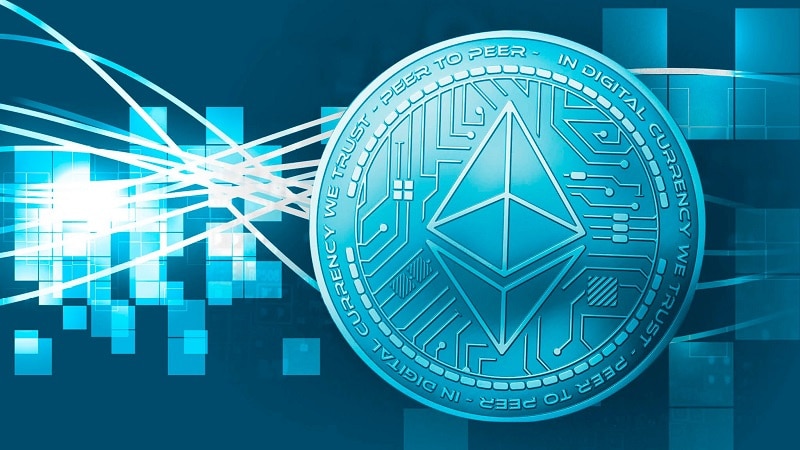
The Ethereum platform is pushing ahead with the next generation of blockchain technology.
Websites cater their UI and strategies for experienced and new bitcoin traders. The platform has paid extraordinary attention to detail while designing its user interface. If you are planning to invest in Ethereum, you must also know about What aspects of Ethereum can help in the insurance industry?
This new protocol is designed specifically for enterprise use as Ethereum makes it possible to build complex applications that go beyond a simple transaction or monetary exchange, using innovative contract technology and decentralized application architecture.
Supply chains are complex, whether large or small, multinational or local, and whether they serve the public or private sector. With so many moving parts and parties involved in a supply chain transaction today, it's becoming more challenging to ensure that each part of the system works effectively to hit deadlines and revenue targets.
Ethereum's blockchain technology may offer an alternative solution: a transparent ledger allowing efficient data sharing and increased tracking capabilities.
Why Ethereum for supply chains?

DApps provide performance improvements over older systems by replacing the need for an intermediary facilitator in transactions. One example of how Ethereum can streamline supply chain management is its use of smart contracts: self-executing pieces of code that perform a specific task when certain conditions are met.
It can be as essential as an order being fulfilled or as complex as automatic payments remitting upon shipment completion. The Ethereum platform also allows for the creation of decentralized applications (DApps) that people across multiple industries and companies can use to build out their supply chains in the most efficient way possible. Let's discuss some top companies that are using the Ethereum blockchain.
IBM
IBM has been exploring blockchain technology since 2015, focusing on using it to reinvent how large enterprises handle supply chain logistics. The company has been working with various industry partners to develop even more innovative use cases for blockchain technology and Ethereum specifically.
IBM also partnered with DOVU in 2017 to build an ecosystem and token economy around IBM's vast data resources, which can now be available across the supply chain and exchanged between different parties. IBM is one of the companies that is exceptionally bullish towards the enterprise's use of Ethereum.
Microsoft
Microsoft has spent the past two years developing its own smart contracts platform based on Ethereum that lets users write programs called smart contracts to self-execute agreements.
Microsoft has also teamed up with ConsenSys, a company that develops applications, tools, and services for enterprises on the Ethereum blockchain, to understand the fundamentals of blockchain technology in supply chains. In addition, Microsoft is investing in research and development around blockchain technology to build business-ready enterprise solutions on top of the public Ethereum platform.
For example, it will allow companies to build in-house distributed ledgers without having to support the network infrastructure.
Walmart

In September 2016, retail giant Walmart began testing a novel food-tracking solution using IBM's Ethereum software. IBM reported that IBM Food Trust and Walmart could trace a package of pork from Chinese pigs to American consumers in less than six seconds.
In addition, it allowed the company to send an alert when certain unsafe items were detected in the food chain, which could cause a recall. With its partnership with IBM, Walmart plans to use Ethereum technology to track food throughout its distribution chain.
IBM and Microsoft are pioneers in developing use cases for Ethereum technology, with more enterprises poised to follow suit. However, supply chains are hardly the only area where organizations could use Ethereum for its performance improvements and provable security.
Businesses of all types can find countless reasons why they should consider using Ethereum as a platform for their decentralized applications (DApps), whether for part of their operations or as a whole new business model.
Overstock
In 2014, the company announced that it would begin utilizing blockchain technology to track the movement of its products in hopes of providing greater customer transparency. To do so, Overstock partnered with several companies, including Intel and Microsoft, which have been working to integrate Ethereum with their Azure cloud computing platform.
Additionally, Overstock invested in Peernova, an Ethereum development startup. The company is also developing its version of an Ethereum ledger that it hopes will be used by others like Overstock.
Amazon
Amazon is also exploring Ethereum as an innovative contract solution. In April 2017, the company announced that it was using Ethereum to create a decentralized application (DAPP) that allowed users to exchange content between themselves. This platform was called the “Amazon Mechanical Turk,” an online marketplace and crowdsourcing platform that connects those with jobs or tasks to be done with others who can help them accomplish them.
Walmart and Amazon are among the many organizations exploring ways Ethereum technology could streamline and improve their supply chain management processes by providing more transparent tracking capabilities for customers and third parties.
Disney

The Walt Disney Company is working with various startups and fellow corporations to explore the use of blockchain technology in its supply chain management efforts. So far, the company has partnered with companies like ConsenSys, a Brooklyn-based venture studio that develops, launches and manages decentralized applications built on the Ethereum blockchain, to develop blockchain-based solutions for its global operations.
The company has also partnered with SAP to develop a single platform that allows both companies to build, launch and manage decentralized applications (DApps) using both private and public blockchains on










